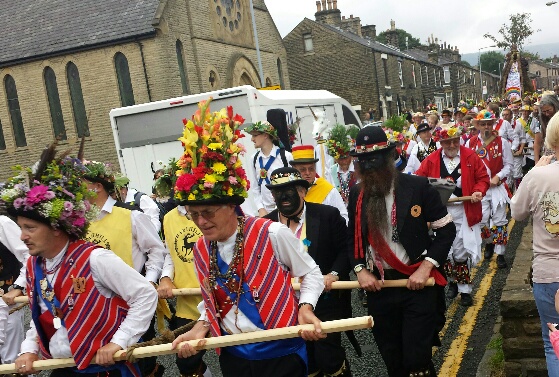Fascinating programme on Beyond Belief about new developments in Mecca and Medina.
I was talking the other day with my friends Afif and Nawal and we were looking at pictures of Mecca. They were showing me pictures of the crowds of pilgrims around the Kabba and in the background you could see incredibly tall skyscrapers that dwarfed the central point. They were both shocked at these buildings that dominated the skyline of the city. The radio programme discussed precisely this.

Over the past 20 or 30 years the Wahabi Saudi Arabian controllers of Mecca have destroyed large areas of both the city of Mecca and of Medina and built large areas of new flats and hotels in high-rise blocks and skyscrapers that also house many shops. This has resulted in very large areas of ancient housing being destroyed and also the destruction of a number of sites connected with the life of the Prophet. This includes some very important sites that were part of the practices of the pilgrims coming to Medina. They were destroyed by bulldozers and tombs simply dynamited.
This behaviour is looked on badly by many Muslims. The Wahabi are a puritanical 19th century group who have looked to return to the first years of the life of the Prophet. They are thus set against what they consider to be effectively polytheistic behaviours that they see expressed in people’s veneration of material aspects of the Prophet’s life, such as the house where he died in Medina and sites where he lived and members of his family died.
In the destruction of the sites we see, according to one of the participants on the radio programme, the destruction of the spiritual geography of Mecca and Medina. He went on to say that the great crisis of Christianity during the 19th century emerged from two areas. One was the work of Darwin which led to a questioning of revealed text and the other was the work of the 19th century German biblical lexicographers although that is not the correct term I use. They analysed biblical texts and alongside the material evidence gathered by archaeology were able to prove that the biblical texts and the historical and textual evidence did not correspond. He suggested that the destruction of the spiritual geography of Medina and Mecca would mean that in the future Muslims too would face the same issue. When they would visit the pilgrimage sites in the future the actual physical remains which, he claimed, were the real locations for the life of the Prophet, would no longer hold together the historico-spiritual life of the site. This would lead Muslims to the same point where doubt about the historical veracity of the life of the Prophet to would begin to emerge.
Alongside this I was considering that the Wahabi were iconoclastic in another way. The horror felt by the sensible Western mind at the destruction of the giant statues of the Bhudda by the Taleban are repeated in this puritanical form of Islam that leads to extremes of iconoclastic town planning in Mecca and Medina. However what is being destroyed from our perspective is the heritage rather than the sacred geography. We in the West tell ourselves the story that Islam has not gone through the series of pre- and Protestant Reformations that have marked the Christian world of the last six centuries and led to the breakdown of religious certainties and the emergence of forms of intellectual freedom which we cherish. So from that perspective, the work of the iconoclastic Wahabis is to our taste. In the long run it is they who will break the power of a notion of ‘true’ Islam. Certainly that the Wahabi’s were not orthodox Islam was the claim by one participatant in the radio programme for whom the Taleban were the skirmishing frontiersmen of the effectively uncultured Wahabis.
So the other way in which they are iconoclastic is in that they also attack our Western love of monuments to the past whether that be an intact 15th century street or the tomb of a member of the Prophet’s family. So we find ourselves in a strongly “catholic” world. Whilst we have had successive reformations we remain in the thrall of the shrine, the relic and we give it a new terminology: tradition, heritage. But we enshrine its defence in certain laws, legal restraints being nevertheless overridden by commercial practices with more immediate gains than the humanistic or spiritual rewards offered by the shrine, the monument to the past.

